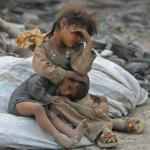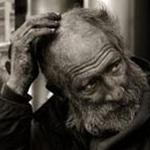For children under 15 the figure was 27.7 percent. Turkish authorities are good at implementing various projects to combat those ills, says Pieters, but the key to sustaining the projects is to have continuous progress.
The organization' priorities in Turkey are girls' education, general pre-school education, access to protection and justice for children, according to Pieters.
How challenging have you found your experience in Turkey?
I think it has been probably the most challenging because of its diversity, its richness and its extreme social exclusion.
From the viewpoint of UNICEF what is the most important issue regarding children in Turkey?
Every five years we sit [down] with the Turkish government, with civil society organizations, with children and parents, and we identify -- based on national priorities -- what should be done to improve the quality of life and rights of children in Turkey. One of the identified priorities is girls' education. In 2003 we started [the project] with our executive director. She came to Turkey and launched a campaign for girls' education with the then prime minister and with the minister of national education. This will continue over the next five years while we are in Turkey. And I think the challenge we have with girls' education is not getting girls go to school after the first wave; the challenge is to keep girls going to school. Girls need to continue school. The other priority we've identified is pre-school education. In order to increase women's employment you need to put systems and place where parents can go to work and children will be safe. We will be working more to promote pre-school education. The other priority is access to protection and to justice for children. Under the law we have seen that in Turkey the justice system protects children, who are the victims, who are the witnesses of abuses and violence, but can also treat children as [adult] perpetuators of crime. And for those children, within the frame of our new law, we need to use a different approach than penalizing them. If a child commits a crime he or she should be penalized -- but you have to have a different approach of doing so. And you also have to see what the parents are doing. This is one part of the priority area. The other part of the priority area we have identified is social policy. This is also part of the global UNICEF policy -- we need to provide much more technical assistance to Turkish politicians, to the Turkish MPs, and to Turkish authorities. And this is what we have been doing, developing a strategy on child poverty, looking into how we can introduce universal child benefits. We're providing advice.
You mentioned that not enough importance is given to child poverty in Turkey? How is that so?
I think it is probably due to the fact that child poverty is very difficult to understand. You have to explain what you mean by child poverty. Turkey has made tremendous progress since 1980; we've seen under-5 mortality drop to below 30 per 1,000, so it is extraordinary. However how do we make sure that we actually bring this to maybe five per 1,000? In order to do that you have to develop special programs, some special scheme to make sure you are reaching those families who have children who are hard to reach. I think this is why the interest in child poverty is not there, because we cannot visualize what are talking about.
What does it consist of?
Child mortality is not defined. The most critical years for a baby in terms of health are until the age of five. Child mortality can be reduced if you put in place correct measures. For example, if we make sure that all Turkish moms exclusively breastfeed that means their babies don't drink water for six months. This could contribute to reducing infant mortality by 40 percent. This is what we need to do. The problem is I think that we are not able to reach [the people].
Why?
Because we need to have a new approach to the way we are working. We need to develop new communication tools. Often those people are the hidden people in society. They are socially excluded. So what works for the average citizen does not work for those groups in Turkey. That is not specific to Turkey. It covers all countries. When you are extremely poor and have difficulty in accessing health services, first you don't have the information -- the information does not reach you -- second because you are poor you tend to be disempowered. So what we need to do is to come to them and bring them that information. This is what we need more to do in the area of child poverty.
Does UNICEF do that by itself?
No, we don't do anything by ourselves. We have many agencies which provide the technical support. We do provide financing. Currently for example we have a 6 million euro project funded by the European Union. We are using some of that money to support programs. Our main role is to give technical advice and bring international knowledge and good practices to the people. This is what we make available to Turkish authorities. But we also take a lot from Turkey. Let's talk about girls' education. This is I guess one of the most successful campaigns we have in the world. In 2003 when we launched the campaign in 25 countries -- among them Turkey -- we basically brought our know-how but we also receive know-how from those countries.
What was the greatest achievement of Turkey in terms of girls' education?
When we started the girls' education campaign, Turkey was doing well. So this was again a typical project to address social exclusion. The majority of girls and boys are going to school. However there was a small percentage -- 7 percent -- who were not going to school. Basically when we started the campaign the campaign targeted girls, but it also targeted reducing the gender gap. This campaign has also contributed a lot to getting boys back to school. This campaign was specifically targeted at socially excluded children, because those were the hidden kids. [The campaign] has been very successful. More and more girls and boys are starting school on time. The challenge now is what happens when girls are in grade five. At this point we see girls dropping out of school. Therefore we need to continue girls' education. But the messages we are going to give have to be different, because the focus has to change. The challenge is to make parents understand that girls' education does not stop at the age of 10. Girls' education should never stop -- the same for boys. That is a new challenge -- which was not foreseen at the beginning of the campaign.
What are you doing to achieve your goals in the area of child poverty?
We've set up a parenting education program, because this is what we believe in. If you really want to reach the hard-to-reach, you have to come to the parents. So we have set up a parenting education program, which has reached about 100,000 families. They are not all poor, but a lot of them are in the poor neighborhoods of cities.
Who goes to parents? Who reaches out to them?
The programs target women. The Ministry of Education, municipalities are offering parenting education in their own centers. It is usually mothers who are going and they attend courses. And it is often the mothers who don't work. And it is the mothers who don't have a very high level of education. So they come there to supplement their knowledge. And what they do after each class -- there are 18 that they take back home and share this information with the spouse or with the mother-in-law. What they have learnt in this parenting course is how to communicate with the spouse, how to communicate with the children, how to discipline and how to nourish. A lot of children, especially in poor neighborhoods, are malnourished. Therefore we are teaching parents what is the right diet that should be provided to the children. A lot of poor children are not immunized. They are missing out. We are still struggling every year to reach this group of children. The other thing, raising children is still perceived, particularly in traditional societies, as the main role of women. And we are trying to bring them the message that a child needs both his mother and his father. The other thing this program is doing is to look into the whole issue of providing some form of a second-chance education for children who missed out on school. We work with the Ministry of Education to develop a specific program, to give a second-chance education to children. What this program means is that a lot of children between the ages of 10 and 14 have missed out school, either they went and dropped out or never went at all. But those children should be given a second chance to go back to primary school. So we developed what we call the catch-up program.
How receptive have the Turkish authorities been to the suggestions from UNICEF?
We have enjoyed excellent relations with the Turkish government over 60 years. I think we could say it is a long, successful partnership. We understand that we have a common interest with the Turkish government. We want to make sure that the children of this country and of other countries as well grow well and enjoy their rights. We are often invited by parliamentarians to special inquiries. With anything related to children, the Turkish public and especially the media have been very receptive. So for us this has never been a challenge.
Is there a lot more to do?
I'd like to see much more investment for children. When you do a comparative analysis, you see how much the Turkish governments have been investing in education. No doubt this has been increasing. However this increase should continue. So we should be supporting and ensuring that the government increases the budget for education and for health. But we also have to ensure that government increases the budget for SHÇEK (the Social Services and Child Protection Agency -- the coordinating agency for implementation of the Child Rights Campaign in Turkey) very well. The other thing I'd like to see more of is giving a chance for children to express themselves, to have a more predominant role particularly at the level of provinces. They should be given a platform where they can express their opinion. Expression of an opinion does not mean that we have to do what a child says. I'd also like to see much more equality between men and women. Sustaining investment in education must be continued to ensure that there is no difference between a girl and a boy in Turkey.
What should parents do if they want to have their children participate in children's forums?
We have been working with SHÇEK for the past 10 years to set up a child forum. So once a year, we bring together boys and girls from each of the Turkish provinces and they come and they learn about their rights. We are trying to establish a child-rights commission. It would be made exclusively by children. Their program is currently to inform their peers that they have rights. Children have rights and children have decided that they [will] organize a campaign. What we are doing in 25 provinces is building the capacity of children on how to develop a campaign, how to raise funds for themselves. For example we were in Bursa. We brought different child-right commissions. They organized events to raise awareness that they have rights. If you have children living in İstanbul what they need to do is to contact SHÇEK and to get the address of the child-rights commission in İstanbul.
What is the targeted age group for that?
It is 7 to 18, but most of the children are about 7. So it should start at primary school.
I saw an expression in one of your booklets, 'friendly cities' for children? What does it mean?
This is a new initiative we started with the lead agencies, the Ministry of Interior. It is a framework. And basically all the programs that we support in Turkey, we put them in the framework of child-friendly cities. So to become a child-friendly city you need to make sure you have a functional child-rights commission. This means that this commission should be invited to take part in the decision making process at school meetings. In each of the cities we have developed a set of indicators, which every province is collecting. And the idea of those indicators is to judge the situation of children in terms of their health, in terms of education, how much access they have to the justice they need. So the city becomes child-friendly when those indicators are very high. We are looking into how we can make all the hospitals baby-friendly. What we mean by that is that a hospital should provide you as parents all the necessary information about breastfeeding, about immunization, anything related to child development. The Ministry of Health has done very well so far.
What have they done?
They have developed the 25 indicators. They have collected all the data since 2003 based on those 25 indicators and they have developed an information system. The collected information will be compiled into a database. One governor will be able to see how well one city is doing in terms of girls' education, for example. Governors will also be able to compare themselves with Europe. Turkey can compare itself with Romania, for example. The information system is now available at the Ministry of Interior. They are using it to monitor child poverty, to see if the well-being of children in provinces is getting better -- ultimately using [the system] to improve good governance. And it wants to use that to measure the performance of a government. So I don't think there is a problem of implementation, but rather of sustaining. All those models that we are introducing, whether it is catch-up education, whether it is monitoring child poverty, need to be sustained -- but not by UNICEF funds, because we don't have the funding available.
Lila Pieters
She is the deputy representative of the United Nations Children's Fund (UNICEF) in Turkey and has been living in Ankara with her family since 2004. She joined UNICEF in 1994, just after the Rwanda genocide, and has worked with UNICEF in Zaire, Rwanda, Bangladesh and Turkey.
Before UNICEF she worked for international organization Save the Children in Sudan, Thailand and the UK. She has been involved in children's issues since high school, when she went to volunteer for Mother Teresa in India.(Z/EÜ)






